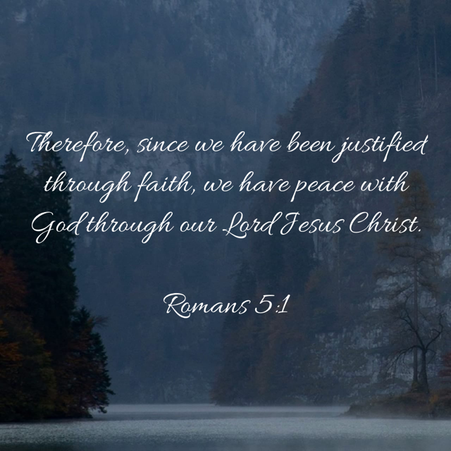|
Good morning! We're so glad you're joining us today on the Second Sunday of Advent. We are meeting together in person, and sharing our joys and concerns. If you are still reading from home and have prayer requests, you can add them as a comment so we can all prayer. When you are ready to get started, use the prayer below from the Revised Common Lectionary: God of timeless grace, you fill us with joyful expectation. Make us ready for the message that prepares the way, that with uprightness of heart and holy joy we may eagerly await the kingdom of your Son, Jesus Christ, who reigns with you and the Holy Spirit, now and for ever. Amen. This week's lesson is on Deuteronomy 5:1-3; 10:12-13; 27:1-10. Deuteronomy means second law. It is the second instance of the giving of God’s law to Israel- the first time being to the generation that followed the one of the exodus from Egypt. Israel’s long journey to the promised land of Canaan had arrived east of the Jordan River. The previous generation of Israel, prevented from entering the promised land, had perished in the wilderness because of unbelief. Deuteronomy details Mose’s expounding on Gods law to Israel and his farewell address to a new generation on the verge of entering the promised land. One way Deuteronomy can be studied is on the basis of Mose’s four major addresses. The first reviews the ways God worked in and provided for Israel throughout the desert wanderings. The review culminated in a reminder that Israel was a people set apart, called to live in obedience to God. The second address reviewed God’s law for Israel and provided moral boundaries for living in the promised land. Mose’s third address explored the demands of covenant life and the dangers of disobedience. It culminated in a call for Israel to commit to following God and his laws. In what became the final scene of Mose’s life, his fourth address presented Joshua as the new leader for Israel. This address served as that man’s commissioning as the people entered the promised land. God desired that Israel be known as a people well acquainted with his righteous standards. He expressed that desire in terms of the covenant. The covenant served as the formal agreement between God and his people, describing how Israel was to live as a holy people and how God committed to making Israel his people. Throughout Israel history, God made several covenants with his people. Each detailed a different aspect of his commitment to and expectation for the Israelites. This week’s Scripture texts describe how Israel was to commemorate and commit to the covenant God made with them at Sinai. Throughout Deuteronomy, the command to hear draws the attention and focus on Israel. However, the command is more than a call to hear; it challenges the audience to live in obedience to that is heard. God’s decree and laws are what Israel is called to hear and therefore obey. Obedience begins by hearing and continues through proper action. To learn and follow God’s laws communicates that Israel must expect God’s commands, mediated through Moses, and make certain that these demands direct their behavior. Otherwise, true hearing had not occurred. The people needed to listen to Moses to learn what God had to say. The command to hear was especially important, given that the Lord made himself heard but not seen at Horeb or Mount Sinai. Now a generation later, Moses recalled that moment when God made a covenant with Israel and how it should remind them of God’s great acts of salvation and called Israel to live as God’s people in light of that reality. This covenant was not merely an event for Israel’s previous generations; it stipulations also applied to their current and future generations. Following God’s law implied a desire for justice and mercy and to possess a reverential respect for him. They were to walk in obedience to love the Lord your God with all your heart and with all your soul and with all your strength. Moses concludes by stressing the importance of obedience to the Lord. His commands and decrees did not exist to frustrate God’s people but were given to his people for their own good. God promised to bless his people as long as they obeyed his commands. Moses would not be alive when the people of Israel entered the promised land so this set the stage for the transfer to Joshua the leadership responsibilities. They were to perform a ceremony by writing the law on stones once they entered the promised land and to build an altar and offer offerings to God. This would symbolize the worshipper’s complete surrender to God. The meal afterwards would provide a time for Israel to rejoice in the presence of the Lord as the meal reminded them of God’s presence and faithfulness. This was a celebration. Conclusion The one thing Israel was to do better than anyone else was obedience to God and his law. This was how they were to live according to the covenant. Moses recognized this requirement, and it’s main reason imperatives like obey, keep, serve, and do are found throughout this week’s Scripture text. A people obedient to the commands of God would have a proper understanding of justice and just living. It was one thing for Israel to write God’s laws on stones; it was quite another thing to practice faithful obedience to those laws. May we write God’s laws on our hearts and practice faithful obedience in all areas of our lives. Prayer Father, may we recognize that the challenge placed before Israelites is the challenge placed before us today. May we be more than hearers of your Word; may we resolve to be doers as well. In Jesus’ name we pray. Amen Questions Which imperative of fear, walk, love and serve will you focus on improving the most in the week ahead? What can you do to overcome a tendency to talk too much and listen too little? Benediction This week's benediction is from the God's Word translation. Next week's lesson will be on 2 Samuel 9:1-7, 9-12.
0 Comments
Leave a Reply. |
AuthorWe are a small, rural Presbyterian church in southwestern Pennsylvania. Archives
July 2024
Categories
All
|



 RSS Feed
RSS Feed